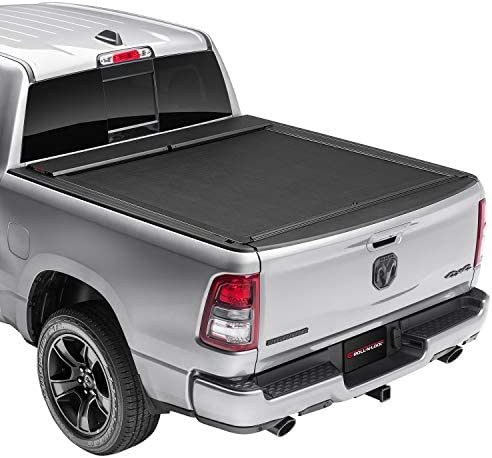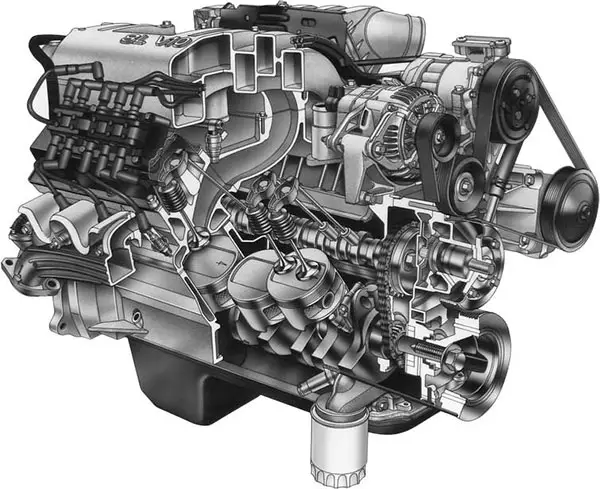How Much Does A Truck Frame Weigh – Full Guideline
Truck frame weight is an important factor that affects the efficiency, safety, and environmental impact of trucks. In this post, we will explore the various factors that contribute to truck frame weight, legal limits on weight, and ways to reduce weight for improved efficiency and safety.
Definition of Truck Frame Weight
The weight of a truck frame refers to the weight of the chassis or structural frame that supports the body of the truck and its components, including the engine, transmission, axles, and wheels.
Importance of Knowing Truck Frame Weight
Knowing the weight of a truck frame is crucial for several reasons, such as ensuring compliance with weight regulations, preventing safety hazards on the road, and improving fuel efficiency.
Overview of Topics to be Covered
The topics we will cover in this post include:
- Factors that Affect Truck Frame Weight
- Common Truck Frame Materials and Their Weight
- How to Measure Truck Frame Weight
- Legal Limits on Truck Frame Weight
- Effects of Excessive Truck Frame Weight
- Ways to Reduce Truck Frame Weight
- Truck Frame Weight and the Environment
Related Article: How Much Does A Toyota Highlander Weigh
There are many factors that can affect how much a truck frame weighs. The size and style of the truck, as well as the materials used in its construction, all play a role. A typical truck frame may weigh anywhere from 1,000 to 4,000 pounds.
A truck frame typically weighs between 3,000 and 4,000 pounds. The weight of a truck frame varies depending on the size and type of truck. For example, a smaller truck like a Toyota Tacoma has a frame that weighs around 3,000 pounds, while a larger truck like a Ford F-350 has a frame that weighs around 4,000 pounds.
The weight of a truck frame also varies depending on the material it is made from. For example, a steel frame typically weighs more than an aluminum frame.
Truck Weight Frame
Factors that Affect Truck Frame Weight
Several factors can affect the weight of a truck frame, including:
Type of Material Used
The type of material used to construct the frame can have a significant impact on its weight. Common materials used for truck frames include steel, aluminum, composite materials, and wood.
Size of the Truck
The size of the truck, including its length, width, and height, can also affect the weight of the frame.
Type of Truck
Different types of trucks, such as commercial trucks, pickup trucks, and semi-trucks, have varying weight requirements and may require different types of frames.
Other Components Attached to the Frame
Additional components attached to the truck frame, such as fuel tanks, tool boxes, and bumpers, can also contribute to the overall weight of the truck.
Common Truck Frame Materials and Their Weight
Different materials have different weights and properties that can affect the efficiency, durability, and safety of the truck. Some common materials used for truck frames include:
Steel
Steel is a popular material for truck frames due to its strength, durability, and low cost. However, it is also heavy and can contribute to increased fuel consumption and wear and tear on the truck.
Aluminum
Aluminum is a lighter alternative to steel that offers similar strength and durability. It is more expensive than steel but can provide improved fuel efficiency and reduced wear and tear on the truck.
Composite Materials
Composite materials, such as fiberglass, carbon fiber, and Kevlar, offer a lightweight and strong alternative to traditional materials. However, they are more expensive and may not be as widely available.
Wood
Wood is a traditional material that was commonly used for truck frames in the past. While it is lightweight and inexpensive, it is also less durable and may not meet modern safety requirements.
How to Measure Truck Frame Weight
There are several methods for measuring the weight of a truck frame, including:
Weighing Scales
Trucks can be weighed on certified scales at truck stops, weigh stations, or other locations. This method provides an accurate weight measurement but requires the truck to be physically present at the scale.
Online Calculators
Online calculators can estimate the weight of a truck frame based on its dimensions and the material used. While this method is convenient, it may not provide the most accurate measurement.
Measuring the trailer
Another way to measure the weight of a truck frame is by measuring the weight of the trailer and subtracting it from the total weight of the truck and trailer. This method can provide an estimate of the weight of the frame but may not be as accurate as other methods.
Legal Limits on Truck Frame Weight
Trucks are subject to weight regulations set by the government to ensure safety and protect the infrastructure. Legal limits on truck frame weight vary by jurisdiction and depend on several factors, including:
Type of Truck
Different types of trucks may have different weight limits, such as commercial trucks, pickup trucks, and semi-trucks.
Number of Axles
The number of axles on the truck also affects weight limits, with more axles allowing for a higher weight limit.
Gross Vehicle Weight Rating (GVWR)
The GVWR is the maximum weight allowed for a fully loaded truck, including the weight of the truck, trailer, cargo, and passengers.
Bridge Formula
The Bridge Formula is a federal law that establishes weight limits based on the spacing between axles and the total weight of the vehicle.
Effects of Excessive Truck Frame Weight
Excessive truck frame weight can have several negative effects, including:
Reduced Fuel Efficiency
Heavier trucks require more fuel to operate, resulting in increased costs and environmental impact.
Increased Wear and Tear
The added weight can put additional strain on the truck’s components, leading to increased maintenance costs and decreased lifespan.
Safety Hazards
Overloaded trucks can be more difficult to control and stop, increasing the risk of accidents and damage to the road infrastructure.
Ways to Reduce Truck Frame Weight
Reducing truck frame weight can provide several benefits, including improved fuel efficiency, reduced wear and tear, and compliance with weight regulations. Some ways to reduce truck frame weight include:
Using Lightweight Materials
Replacing heavy materials, such as steel, with lighter materials, such as aluminum or composite materials, can significantly reduce the weight of the truck frame.
Streamlining the Design
Reducing the size and number of additional components attached to the truck frame can also reduce weight, as well as improve aerodynamics for improved fuel efficiency.
Proper Loading and Distribution of Cargo
Properly loading and distributing cargo can help reduce the weight of the truck and ensure compliance with weight regulations.
Truck Frame Weight and the Environment
Reducing truck frame weight can also have a positive impact on the environment by reducing fuel consumption and emissions. Some additional ways that truck frame weight can affect the environment include:
Increased Fuel Consumption and Emissions
Heavier trucks require more fuel to operate, leading to increased greenhouse gas emissions and air pollution.
Reduced Resource Consumption
Using lighter materials for truck frames can reduce the number of raw materials needed for production, as well as reduce energy consumption during the manufacturing process.
Improved Sustainability
Reducing the environmental impact of trucks can help promote sustainability and support efforts to combat climate change.
FAQs
What is the average weight of a truck frame?
The weight of a truck frame can vary widely depending on several factors, such as the size of the truck, type of material used, and additional components attached to the frame. However, a typical range for truck frame weight is between 1,000 and 5,000 pounds.
How do weight regulations vary by jurisdiction?
Weight regulations for trucks can vary by state, province, or country. Some jurisdictions may have different weight limits for different types of trucks or roads, while others may have a uniform weight limit for all vehicles.
What are some of the consequences of violating weight regulations?
Consequences for violating weight regulations can vary by jurisdiction but may include fines, impounding of the vehicle, and suspension or revocation of the driver’s license. In some cases, the driver or company may also face legal liability for damage caused to the road infrastructure or other vehicles.
Can reducing truck frame weight really make a significant difference in fuel efficiency?
Yes, reducing truck frame weight can have a significant impact on fuel efficiency, as the added weight requires more fuel to operate. Studies have shown that reducing truck weight by just 10% can result in a 5-6% improvement in fuel efficiency.
Conclusion
A truck frame typically weighs between 3,000 and 4,000 pounds. The weight of a truck frame can vary depending on the size and type of truck.
Read More:






